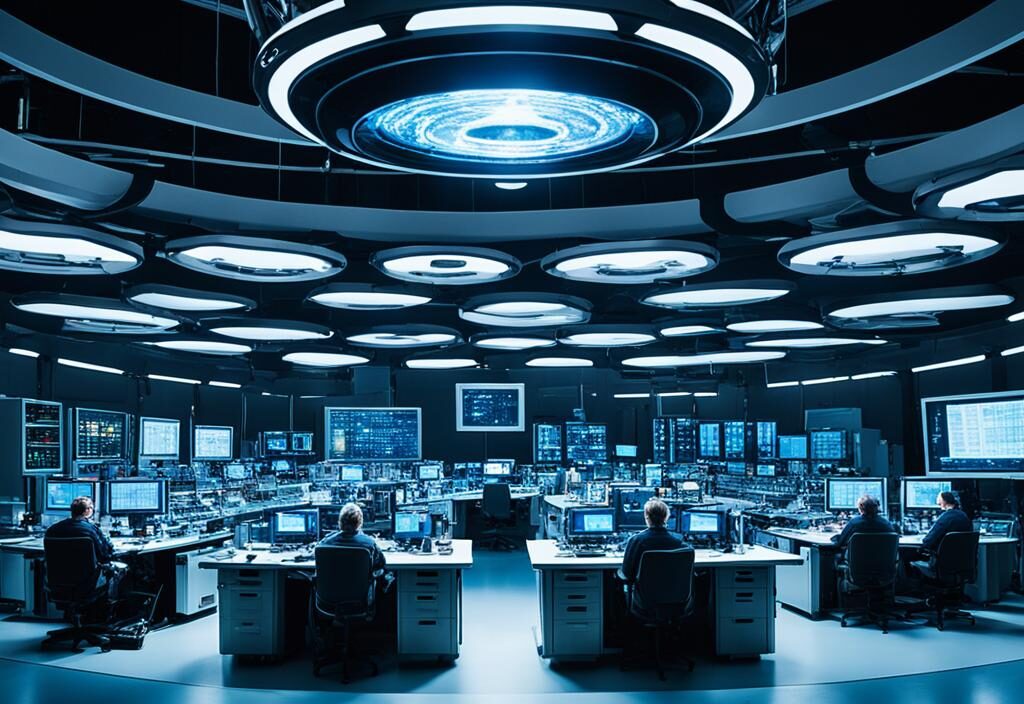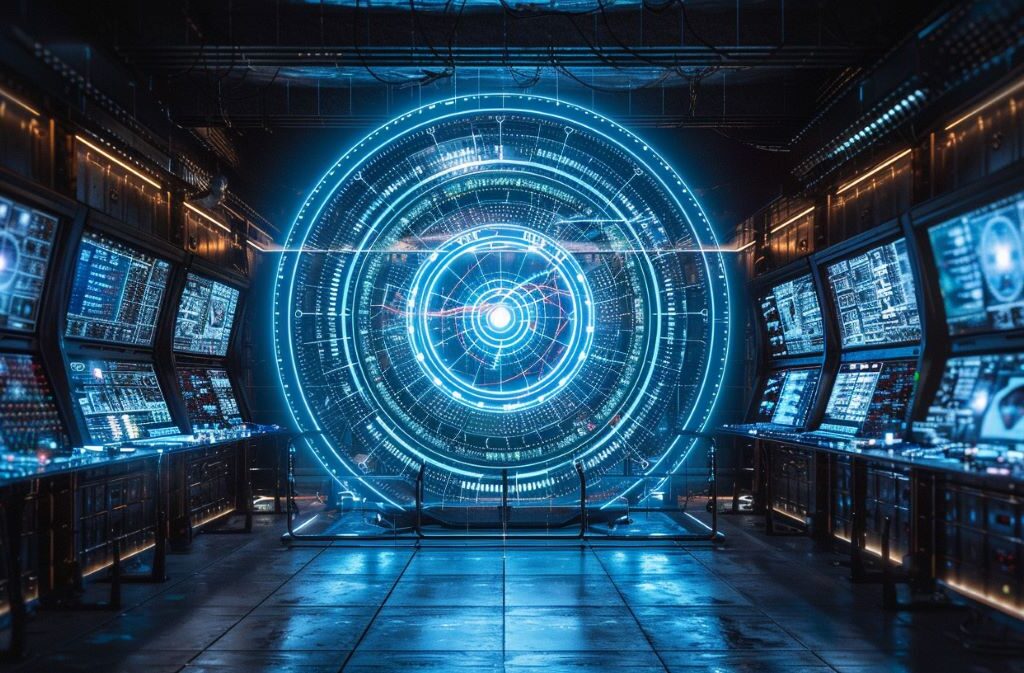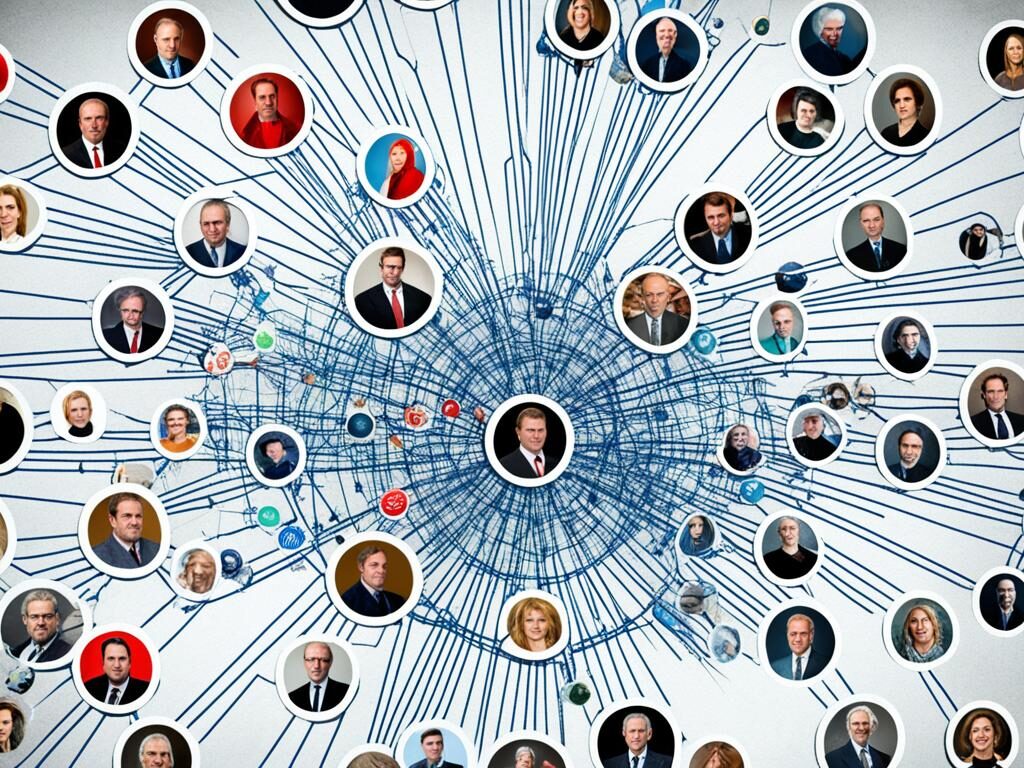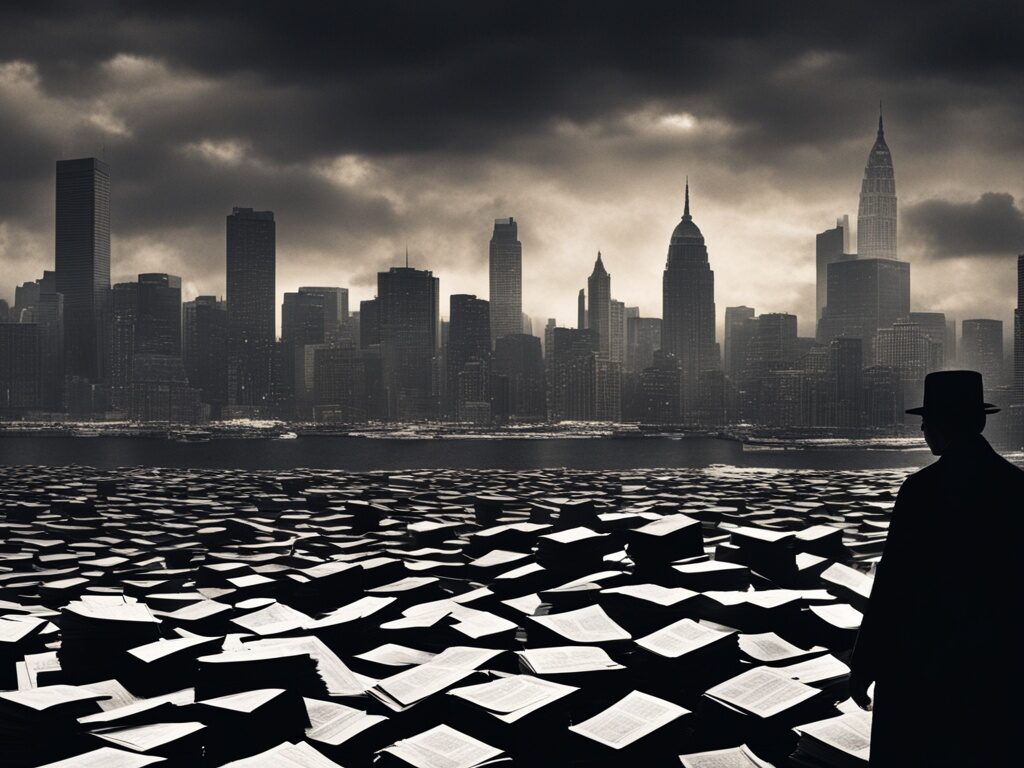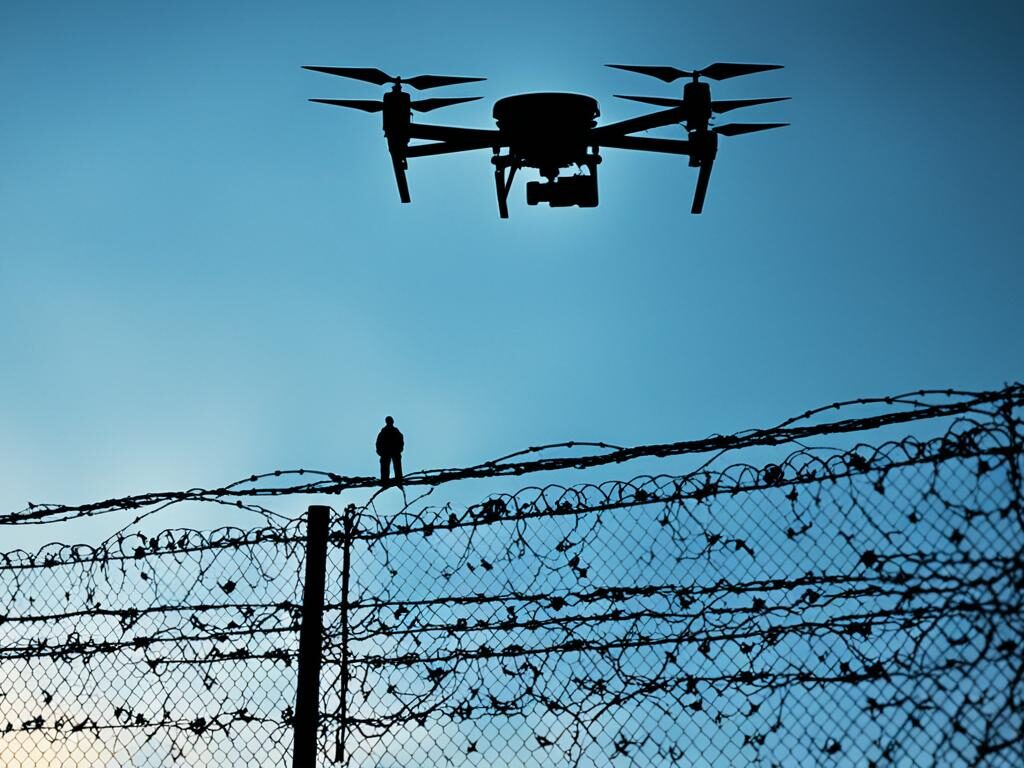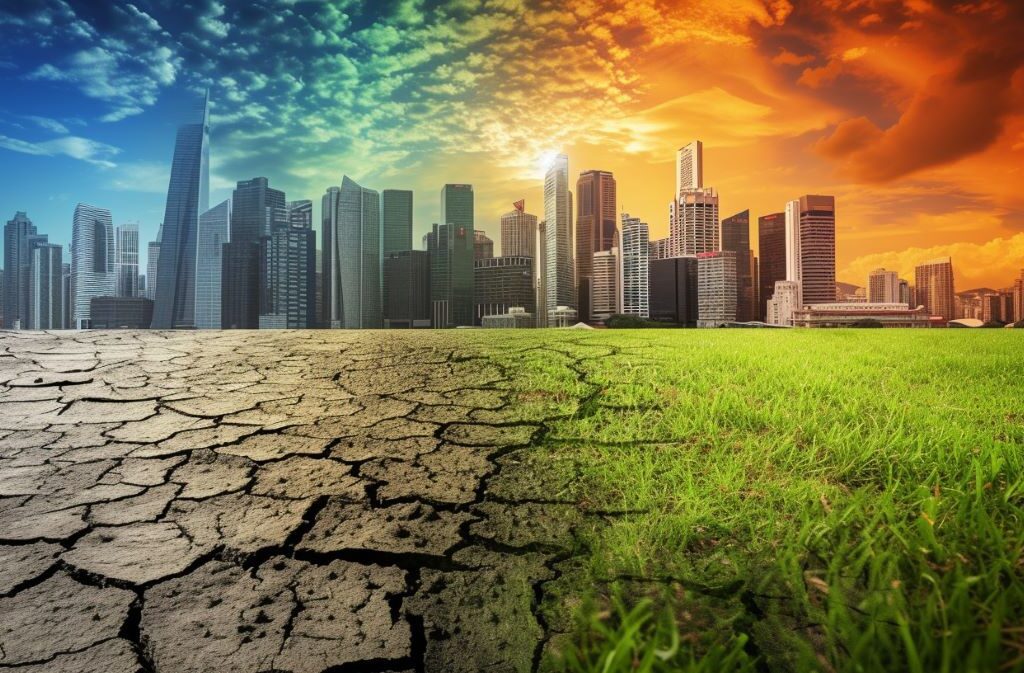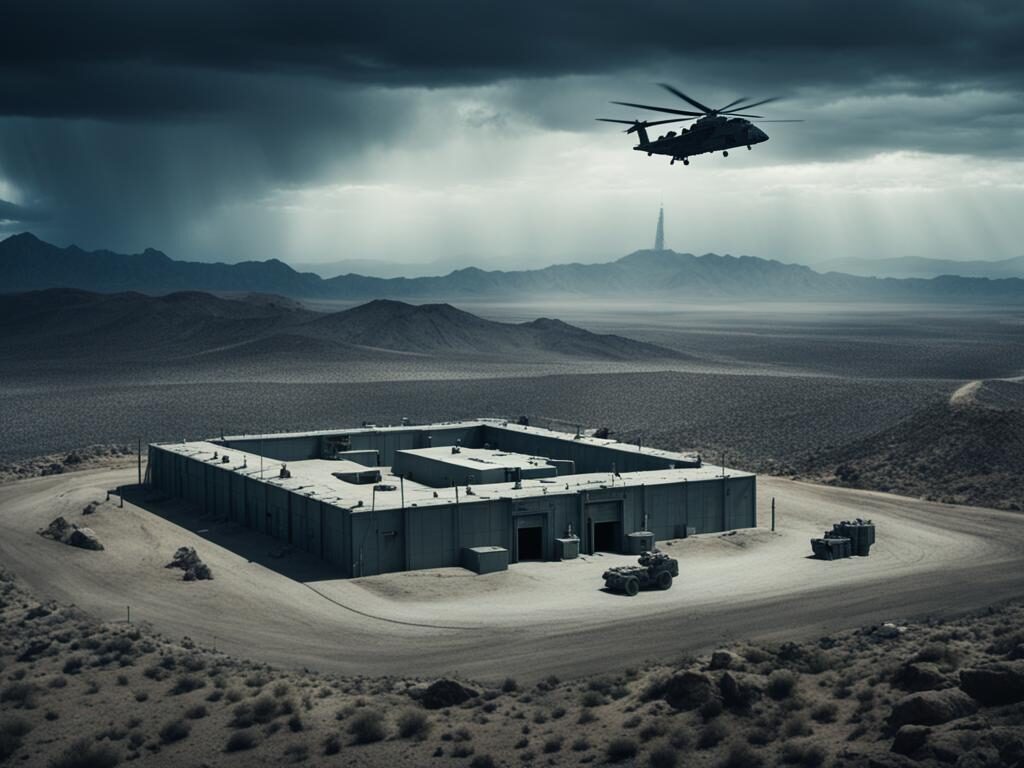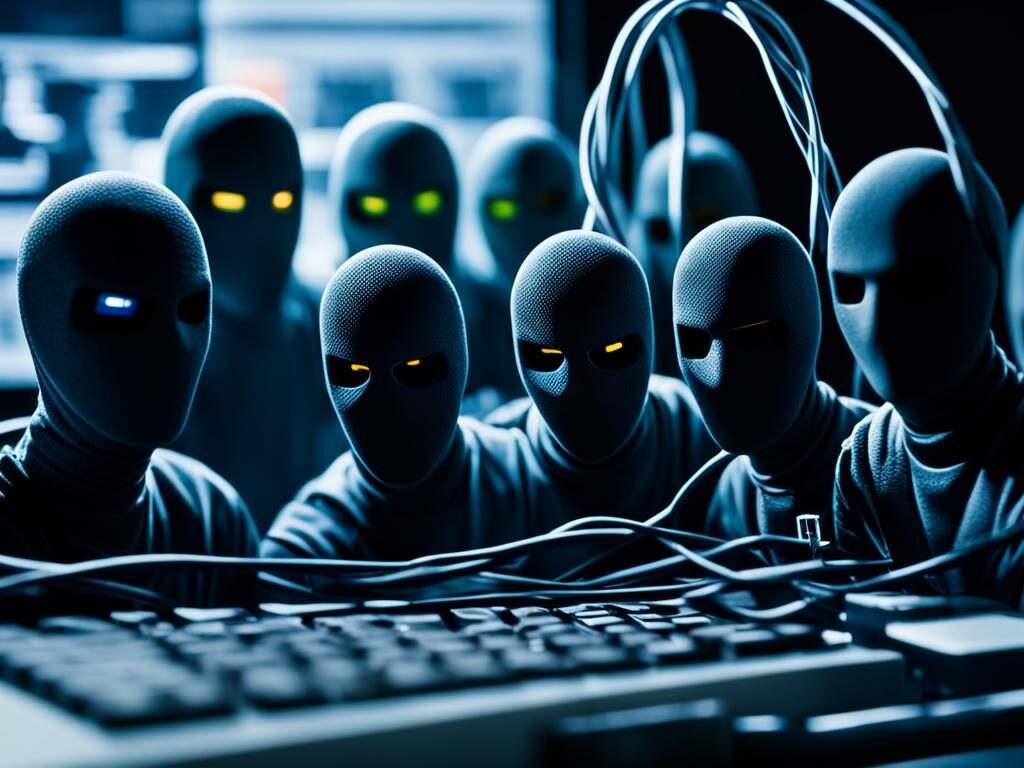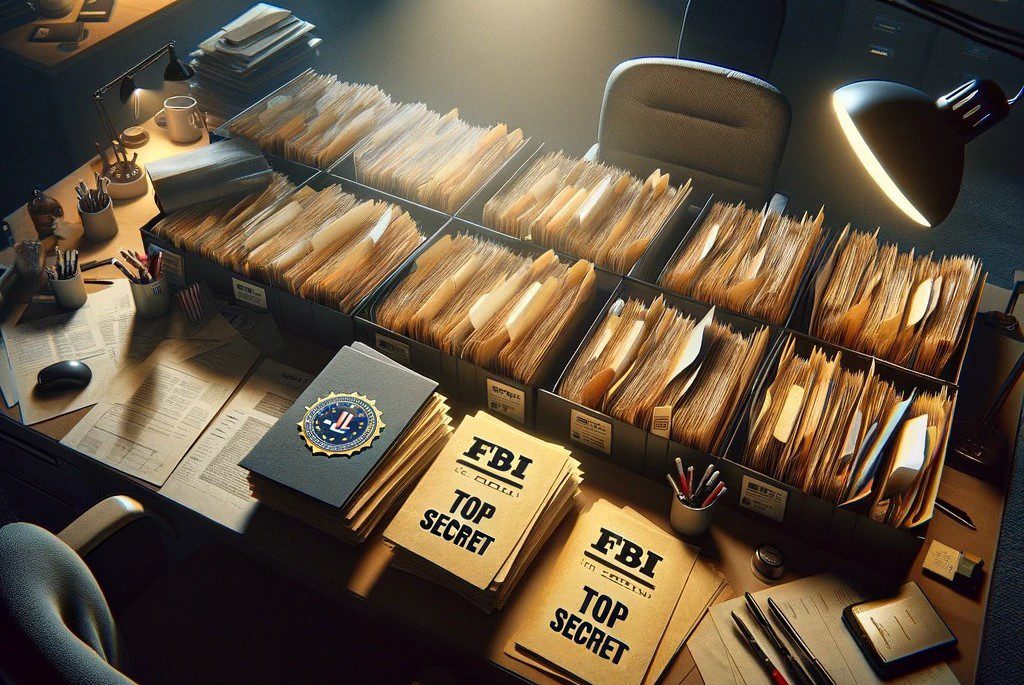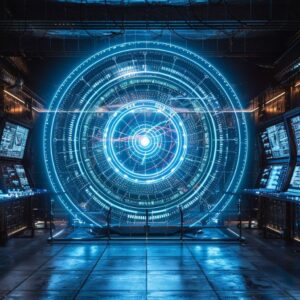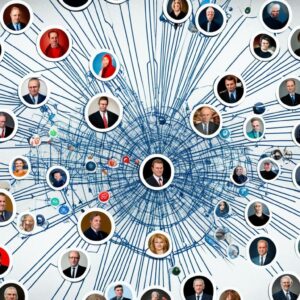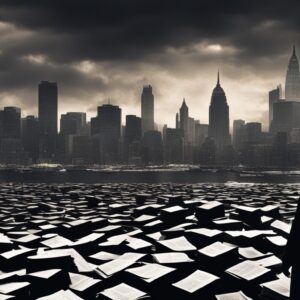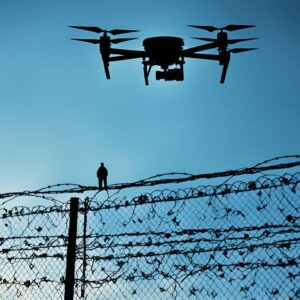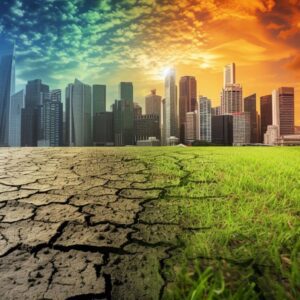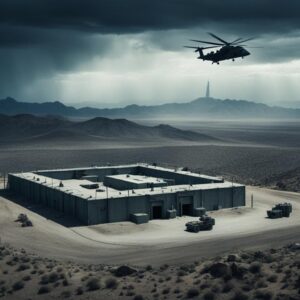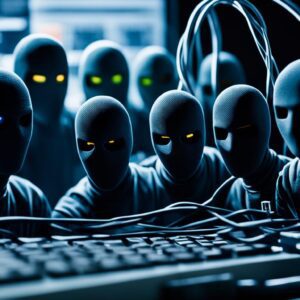George Orwell’s “1984” described a strong government watching its people closely. It feels like that’s happening today. Our actions are always being watched. There are cameras in many places, like New York city streets and public areas. This is a big concern because it affects our personal space and freedom.
Key Takeaways
- Government surveillance has become pervasive, monitoring citizens’ movements through extensive networks of cameras.
- This mass surveillance raises concerns about privacy violations and infringement on civil liberties.
- Post 9/11, law enforcement agencies have expanded their surveillance capabilities, often targeting minority communities.
- The rise of surveillance capitalism and data mining poses further threats to individual privacy.
- There is a growing need for stronger legal safeguards and oversight to protect citizens’ rights and freedoms.
After 9/11, the New York Police Department dramatically increased its watch over the city. Their budget for keeping an eye on things skyrocketed to more than $3 billion since 20061. This increase in safety measures means less personal freedom. They use anti-terror tools to fight regular crime, which leads to concerns about treating certain groups unfairly.
The Prophecy of 1984: Big Brother’s Dystopian Surveillance
In 1949, George Orwell published “1984.” This chilling novel paints a picture of a society under constant surveillance. The government watches citizens closely, monitoring all their actions.2 It touches on themes like surveillance, censorship, and totalitarianism. The story is set in Oceania, a place where the Party controls everything people do. It does this through watching them, spreading propaganda, and manipulating facts.2
George Orwell’s Warning: “Big Brother is Watching You”
Orwell highlights the power of language in this novel. The Party creates Newspeak, a language that limits free thought.2 This makes it easier for them to control people. They use telescreens, hidden mics, and informants to keep an eye on everyone. Surveillance and censorship are key to their oppressive rule.2
The slogan “Big Brother is Watching You” is a big part of this. It reminds everyone that the government is always watching. This is symbolized by a figure called Big Brother, who stands for the government’s power.
The Stark Reality: Ubiquitous Surveillance in 2021
Over 70 years later, Orwell’s ideas are more real than ever. Electronic surveillance is now a global issue. It spans across Western Europe, Africa, Asia, the Middle East, and Latin America.3 Today’s surveillance tech is much like that of Oceania. We have cameras and microphones almost everywhere, tracking us constantly.3 Social media is also a part of this. Sites like Facebook and Twitter monitor and influence us. This is similar to the propaganda in “1984.” The Cambridge Analytica scandal in the 2016 US election showed how this works.3
There’s also a new idea called “pleasurable servitude.” This happens when social networks use our information to sell ads.4 It’s like the idea from Aldous Huxley’s “Brave New World.” There, a society is controlled through technology, drugs, and entertainment. Today, however, it’s more subtle. People willingly give up their information. This shows the tricky nature of today’s surveillance.4
Government Surveillance: A Global Phenomenon
Government surveillance is now a worldwide issue. It goes past national borders and affects everyone. This global surveillance poses a serious threat to our digital rights and civil liberties.5
Mass Surveillance in Africa: A Threat to Digital Rights
A study shows that six African nations practice mass surveillance. These nations are Egypt, Kenya, Nigeria, Senegal, South Africa, and Sudan. Unfortunately, their laws don’t do enough to protect their citizens’ privacy.5 Egypt and Sudan are especially at risk because of weak protections and heavy surveillance spending by their governments.5
Western Europe and the US: Systematic Mass Surveillance
In Western Europe and the U.S., surveillance is also a major issue. The use of digital tools has made it easier and cheaper for governments to spy on their people. This problem has been exposed by Edward Snowden and the Pegasus spyware scandal.5
The COVID-19 pandemic has made surveillance even more common. Governments across the world are using technology to track and stop the virus from spreading. But, this has led to concerns about the use of personal data. It’s a tough balance between protecting public health and respecting privacy.6
| Country | Digital Freedom Rank | Freedom in the World Rank |
|---|---|---|
| South Korea | 51 | 1.5 |
| India | 51 | 2.5 |
| Ghana | 48 | 1.5 |
The research highlights an interesting point about digital rights. Even in democratic nations like South Korea, India, and Ghana, there are struggles. Governments’ surveillance efforts challenge the protection of digital freedom.5
The Rise of the Surveillance State in New York City
After 9/11, the New York Police Department (NYPD) worked hard to improve its surveillance. The budget for intelligence and counterterrorism grew a lot, going up to four times its 2006 level.7
NYPD’s Post-9/11 Surveillance Expansion
The NYPD started to focus on Al Qaeda after 9/11, making big changes in 2002. Now, they are using their tactics to fight gang violence and crime in the city.7 Using tools like facial recognition and license plate readers raises worries about privacy and freedom.
Counterterrorism Tools Repurposed for Crime Fighting
Since 2017, the NYPD has used facial recognition in over 22,000 cases. In 2019, around 11,000 of those cases happened.7 The use of this technology has many people worried about rights and its correct use.
A study found over 15,000 cameras at New York City’s intersections. East New York in Brooklyn has 577 of them, making it the most watched area.7 The large number of cameras and the use of counterterrorism tools for crime prevention worry those who care about privacy.
The investigative project was designed with past camera mapping projects in mind, such as the 1998 and 2006 walking surveys conducted by the New York Civil Liberties Union (NYCLU).7
In New York City, the surveillance system is growing. This makes people wonder about the balance between keeping the country safe and protecting individual rights.
Government Surveillance: Violating Civil Liberties
Government surveillance programs have gone too far in the name of safety, affecting our right to private space.8 There’s a fine line between keeping us safe and respecting our privacy. Such surveillance should only be used as a last resort and stay focused on real threats.
Privacy as a Fundamental Right
Our privacy is key to living in a free and democratic country, protected by the U.S. Fourth Amendment. But recent investigations by Edward Snowden and others have shown that our governments watch us way too much, breaking their own rules.8 This not only attacks our individual rights but also makes it hard for us to trust the people who are supposed to be looking out for us.
Racial Profiling and Targeting Minorities
There is further worry over racial bias in these surveillance efforts. Black and Muslim communities are watched more than others.9 This unequal treatment deepens the question of how fair and just these wide-scale surveillance actions are.
After 9/11, we’ve seen a big increase in watching how we live. This is especially hard on groups that are already struggling, like people fighting for fairness and equal rights.9 To make things better, suggestions have been made. These include protecting our data better, being more open about how much keeping an eye on us costs, and overseers needing to get permission before going through our personal communications. It’s also important to limit checking on people in other countries and stop the government from buying our personal information from private companies.
The Acceptance of Surveillance Among Younger Generations
A survey by the Cato Institute showed something surprising. Nearly one out of three Americans aged 18-19 (29%) support having government cameras in our homes. What’s even more interesting is that younger people are more likely to embrace the idea of constant surveillance10. This acceptance might come from growing up with smartphones and social media. These lead to less data privacy. Also, young people face more anxiety. They are also willing to trade some civil liberties for feeling safe10.
Recently, a new generation has heavily used online tools. This has changed how privacy and data protection are understood11. The use of the Internet, cloud services, and analytics poses new challenges to preserving privacy. It questions existing privacy laws11.
While the promise of safety remains dubious, the threat to personal privacy and civil liberties is undeniable. As we navigate this brave new world, it is imperative that we remain vigilant in protecting our fundamental rights and freedoms from the encroaching reach of the Surveillance State.
The change in how young people see mass surveillance has several reasons:
- Growing up in a time when every move online is closely watched
- More anxiety leading to a wish for greater security
- Getting used to the idea of being under watch through daily use of surveillance technology
This shift underscores the need for a careful balance. We should protect both security and civil rights. It’s crucial to make sure our basic privacy rights are not lost in the effort to stay safe1011.
The Snowflake Effect: Prioritizing Security Over Freedom
The idea of government surveillance is more okay for younger people. They may think it’s a good thing because they don’t want to be upset by different views. This belief, as Greg Lukianoff and Jonathan Haidt explain in their book, comes from too much protection when they were kids. It made them feel anxious and didn’t let them learn to handle different opinions peacefully.12
Currently, 91% of adults think we can’t control our personal info and how it’s used. Plus, 68% think the rules about our online privacy aren’t strong enough.12 So, many young folks might go with the flow. They pick safety now, even if it means giving up some of their rights later on.
The acceptance of mass surveillance among younger generations may stem from a combination of anxiety, overprotective parenting, and a warped cultural mindset that prioritizes safety over freedom.
Also, 52% of us worry about government surveillance. 57% think spying on U.S. citizens’ talk is wrong.12 But, 49% feel like anti-terror plans should be stronger, even if it means losing some privacy.12
| Privacy Concern | Percentage |
|---|---|
| Concerned about government surveillance of data | 52% |
| Find government monitoring of communications unacceptable | 57% |
| Prioritize stronger anti-terror programs over civil liberties | 49% |
This move shows the tough choices between security and freedom. There’s a risk of losing civil liberties for public safety. As we talk about internet monitoring and data privacy, finding a fair balance is key. We need to protect rights while dealing with real security issues.
Government Surveillance: The New Face of Tyranny
In the past, our nation was a symbol of freedom and democracy. But now, a dark force threatens the freedom of its people. This Surveillance State has grown powerful without voter support or legal backing. It has abilities unmatched by any other group except the military.13
This Surveillance State isn’t under control by the president, Congress, or the courts. It works closely with powerful corporate interests. This unseen control reaches into all parts of our lives. It watches our actions, listens to our words, and notes our purchases. This is very much like the scary world George Orwell warned about in “1984.”13
The Surveillance State: Beyond Presidential and Congressional Reach
The Surveillance State functions without limits or checks, unlike other government branches. Its work is hidden by the labels of national security and the “war on terror.” This makes it almost impossible for the public to know what it does.13
Orwell’s 1984: An Operation Manual for the Modern Surveillance State
George Orwell’s book, “1984,” seems almost like a guide for today’s Surveillance State. The widespread use of surveillance technology has changed Orwell’s story into an actual situation. He warned us that “Big Brother is Watching You,” and now it’s true. Today, a large intelligence network observes everything we do closely.13
“If you want a picture of the future, imagine a boot stamping on a human face—forever.” – George Orwell, 1984
We must be very careful in this new world. We should do all we can to keep our basic freedoms and civil liberties safe from the Surveillance State. Losing our privacy and accepting mass surveillance is dangerous for our free and democratic world.14 We must remember history’s lessons; the road to tyranny often starts with too much surveillance.
The Four Revolutions of Surveillance Technology
Adam Scott Wandt, a top cybersecurity expert, points out four key moments in how surveillance has changed. These changes have significantly affected government and large-scale monitoring in the U.S.
Public Cameras and the First Surveillance Revolution
The first big change was the widespread use of government-run video cameras in public places. In 2022, there were roughly 51 million cameras across the country.15 This big network lets officials keep an eye on people’s day-to-day lives. It’s made many worry about their privacy and civil rights.
Public-Private Partnerships and the Second Surveillance Revolution
The second shift happened when police teamed up with businesses to watch their live camera feeds.15 This collaboration has made it so authorities can watch people in places they couldn’t before. It blends government and private surveillance more deeply.
Doorbell Cameras and the Third Surveillance Revolution
The third change was with the rise of doorbell cameras like Ring and Nest Cam. With these, police can ask homeowners for their video.15 But, bringing home security systems into the mix raises big privacy issues and fears of misuse.
Facial Recognition and AI: The Fourth Surveillance Revolution
The fourth and current change is the development of facial recognition and AI programs. These can follow people by looking at their faces, clothes, how they move, and even their cars. This allows for watching people from every angle.15 Such advanced tech can identify and track individuals with great precision. But, it has also brought up tough talks about our personal freedom, keeping the country safe, and how much surveillance is too much.
With all these big changes, the balance between keeping the public safe and guarding everyone’s privacy is still a huge deal. It will shape our future in many ways.
The Chilling Effect: Monitoring and Suppressing Lawful Activities
The rise of government surveillance makes people worried. They fear it might stop them from lawful acts, like speaking freely or joining groups. Matthew Feeney voiced this concern in the New York Times. He said constant surveillance might make people not want to speak up or get involved if they feel watched.
For years, the fear of this “chilling effect” has lingered, the courts even discussing it back in the 1950s.16 Legal theories like the overbreadth doctrine and void-for-vagueness doctrine have been used. They’re meant to fight laws that could scare people into not speaking up, citing them as too unclear or broad.
The effect goes beyond speaking up. For example, laws limiting late abortions have scared women from getting an abortion the month before that limit.16
The big worry is how deeply and widely the government watches and collects data. The FBI, for instance, can keep a close eye on social media and online talks. It can even use fake profiles in early looks into someone. And the DHS has rules that let it gather personal info from social media, with groups like ICE and the National Operations Center (NOC) monitoring online posts.17
This deep surveillance could make people stop talking, for fear of legal trouble. This fear might keep them from normal, legal things they’d like to do, like volunteering. This means less free speech and sharing of views, which are key for a strong democracy.
The Supreme Court warns that punishing someone for acts of faith can really hurt freedom of religion.18
The Supreme Court has fought against anything that might make people not want to do what the law allows. Cases from the 1960s show this, like when it decided against loyalty oaths and censorship.18 These rulings underscore the need to protect civil liberties and stop the “chill” from government surveillance.
New ways to watch people are always popping up. It’s vital that we keep laws and checks to make sure our rights and privacy are safe. Balancing security and privacy is hard but vital for a society that’s both free and well-protected.
Conclusion
The Surveillance State in America is growing fast. This is thanks to new tech and partnerships between government and private companies. It is creating a world that threatens our rights and safety in a big way.8 More and more surveillance cameras are watching public places. And cameras like Ring and Nest Cam are in our homes. These tools let the government keep an eye on us everywhere.8
The use of facial recognition and AI marks a new era in watching us closely. It doesn’t stop in the real world. Our online activities are now under constant watch too.19 But there’s a big problem. The laws are old and can’t keep up with how advanced these tools are. This means mistakes happen often, and our privacy is damaged.19
We’re facing a time where surveillance is everywhere. It’s key that we protect our rights. While security sounds good, it comes at a high cost. Our privacy and freedom are at risk. We need to push back on these changes that could threaten our way of life.19
FAQ
What was George Orwell’s warning about government surveillance in his novel “1984”?
Is mass surveillance by governments a global phenomenon?
How has the NYPD expanded its surveillance capabilities after 9/11?
How does government surveillance violate civil liberties?
Why are younger generations more accepting of government surveillance?
How has the “Surveillance State” come into existence?
What are the four revolutions in surveillance technology?
How does surveillance have a chilling effect on free speech and association?
Source Links
- https://www.globalissues.org/news/2021/10/22/29133
- https://www.bookey.app/topic/uncovering-orwell’s-prophecy:-1984-excerpt-analysis
- https://medium.com/@ally789/is-1984-by-george-orwell-a-prophecy-7c5b798256e4
- https://btlj.org/wp-content/uploads/2023/04/0004-37-2-Marlan-web-4-10.pdf
- https://akademie.dw.com/en/digital-authoritarianism-a-global-phenomenon/a-61136660
- https://www.ncbi.nlm.nih.gov/pmc/articles/PMC8497958/
- https://www.amnesty.org/en/latest/news/2021/06/scale-new-york-police-facial-recognition-revealed/
- https://www.brennancenter.org/our-work/analysis-opinion/how-fbi-violated-privacy-rights-tens-thousands-americans
- https://watson.brown.edu/costsofwar/costs/social/rights/surveillance
- https://www.pewresearch.org/internet/2015/05/20/americans-attitudes-about-privacy-security-and-surveillance/
- https://academic.oup.com/idpl/article/1/1/15/759641
- https://www.pewresearch.org/short-reads/2016/09/21/the-state-of-privacy-in-america/
- https://www.the-american-interest.com/2019/05/06/the-new-face-of-tyranny/
- https://wired.com/story/wired25-edward-snowden-malkia-cyril-activist-surveillance/
- https://www.ned.org/global-struggle-over-ai-surveillance-emerging-trends-democratic-responses/
- https://harvardlawreview.org/print/vol-133/the-establishment-clause-and-the-chilling-effect/
- https://www.brennancenter.org/our-work/research-reports/social-media-surveillance-us-government
- https://firstamendment.mtsu.edu/article/chilling-effect/
- https://nap.nationalacademies.org/read/12452/chapter/5



